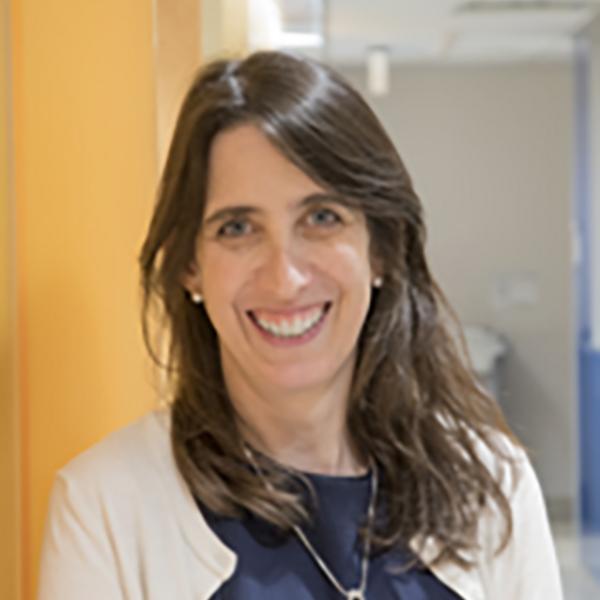Meredith Irwin
MD, Harvard Medical School

Short Bio
Dr. Irwin received her Bachelors of Science at the Massachusetts Institute of Technology and Medical Degree from Harvard Medical School. She completed residency and fellowship training in paediatrics and Haematology/Oncology at Boston Children’s Hospital and Dana-Farber Cancer Institute at Harvard Medical School in Boston, Massachusetts followed by a research fellowship in the laboratory of Dr. William Kaelin, a Howard Hughes Medical Investigator at the Dana-Farber Cancer Institute studying the role of the p53-related genes, p73 and p63, in cancer. After three years on faculty at Dana-Farber Cancer Institute, Dr. Irwin joined the Division of Haematology/Oncology at The Hospital for Sick Children (SickKids) in April 2002 as a Clinician-Scientist.
She is currently a Senior Scientist in Cell Biology, Professor of Paediatrics (cross-appointed to the Departments of Laboratory Medicine and Pathobiology (LMP), Medical Biophysics (MBP)), and the Chair of Paediatrics/Paediatrician-in-Chief at the Hospital for Sick Kids. She also holds many leadership roles in international committees including the Children’s Oncology Group (COG), International Neuroblastoma Risk Group (INRG), and Advances in Neuroblastoma Research (ANR).
Her laboratory research focuses on understanding the molecular determinants of neuroblastoma to identify novel therapies that target signaling pathways using a variety of cellular and animal models. Their translational research program is linked with the SickKids Kids Cancer Sequencing (KiCS) Program and national precision oncology for young people (PROFYLE) programs with a focus on modeling novel germline and somatic variants. Dr. Irwin’s research has been funded by Canadian Institutes of Health Research (CIHR), Canadian Cancer Society Research Institute (CCSRI), National Cancer Institute (NCI) and many neuroblastoma-focused foundations.
In addition to laboratory-based research she is involved in international efforts to develop risk classification systems and clinical trials for newly diagnosed and relapsed neuroblastoma. Locally, Dr. Irwin established the Neuroblastoma Program that is co-led by Dr. Daniel Morgenstern and includes a multidisciplinary team with expertise in the care of neuroblastoma patients. The program cares for local patients as well as provides expert consultations and access to local and international clinical trials and MIBG therapy.
Research Synopsis
Our lab is interested in pathways that regulate tumor cell death and chemosensitivity. We have two main areas of focus including:
- (1) p53 family protein signaling
- (2) novel signaling pathways and therapeutics aimed at neuroblastoma tumor initiating cells (TICs). P73 and p63 are two paralogues of the p53 tumor suppressor protein. We previously discovered that p73 is induced by chemotherapies and that the pro-apoptotic isoform (TAp73) mediates cell death in response to chemotherapies and other anti-cancer agents. Our studies have shown that p73 activity and stability is modulated by ubiquitination and neddylation and a current area of research involves elucidating the pathways that regulate these post-translational modifications of p73 and p63 in cancer and human disease. A second line of study involves the identification of novelp73 and p63 binding partners. We found that SATB2 (special AT-rich binding partner-2) binds to certain p63 and p73 isoforms regulating their ability to induce apoptosis in response to chemotherapy. Preliminary data demonstrates an exciting role forSATB2 in survival and metastases in certain solid tumors. We are also determining the role of other novel p73 and p63 interacting proteins identified in our screens.
Graduate Students
Yagnesh Ladumor
Jenna Park
